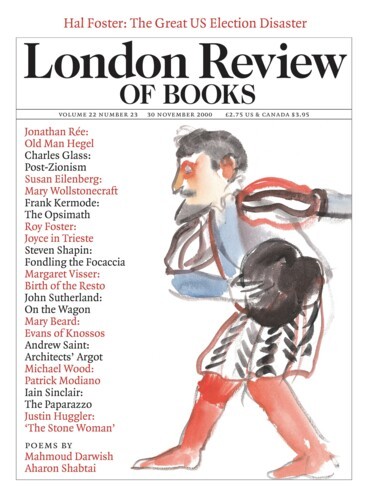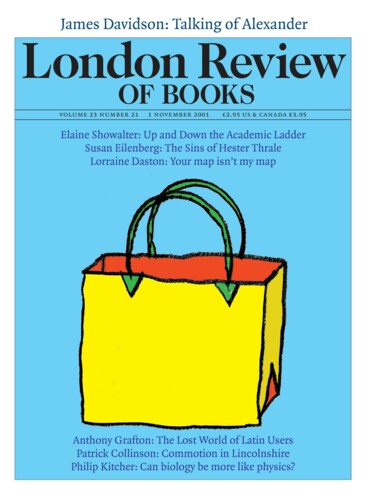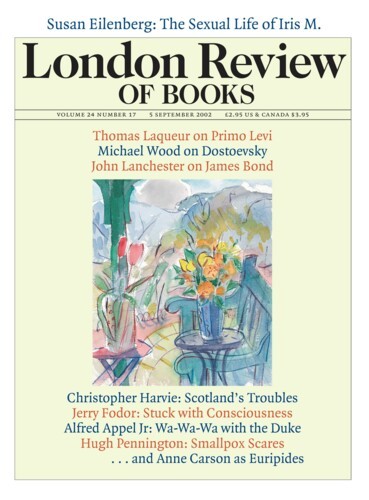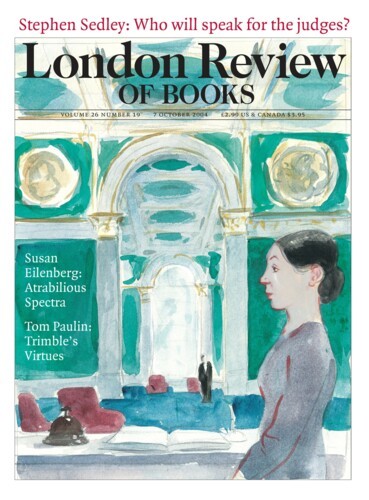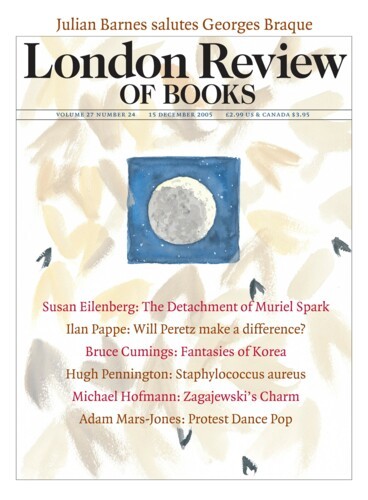Forget that I exist: Mary Wollstonecraft
Susan Eilenberg, 30 November 2000
Mary Wollstonecraft’s defenders have always found their task difficult. Writing her life to disastrous effect in 1798, intent on establishing her as one of those beings ‘endowed with the most exquisite and delicious sensibility, whose minds seem almost of too fine a texture to encounter the vicissitudes of human affairs, to whom pleasure is transport, and disappointment is agony...
